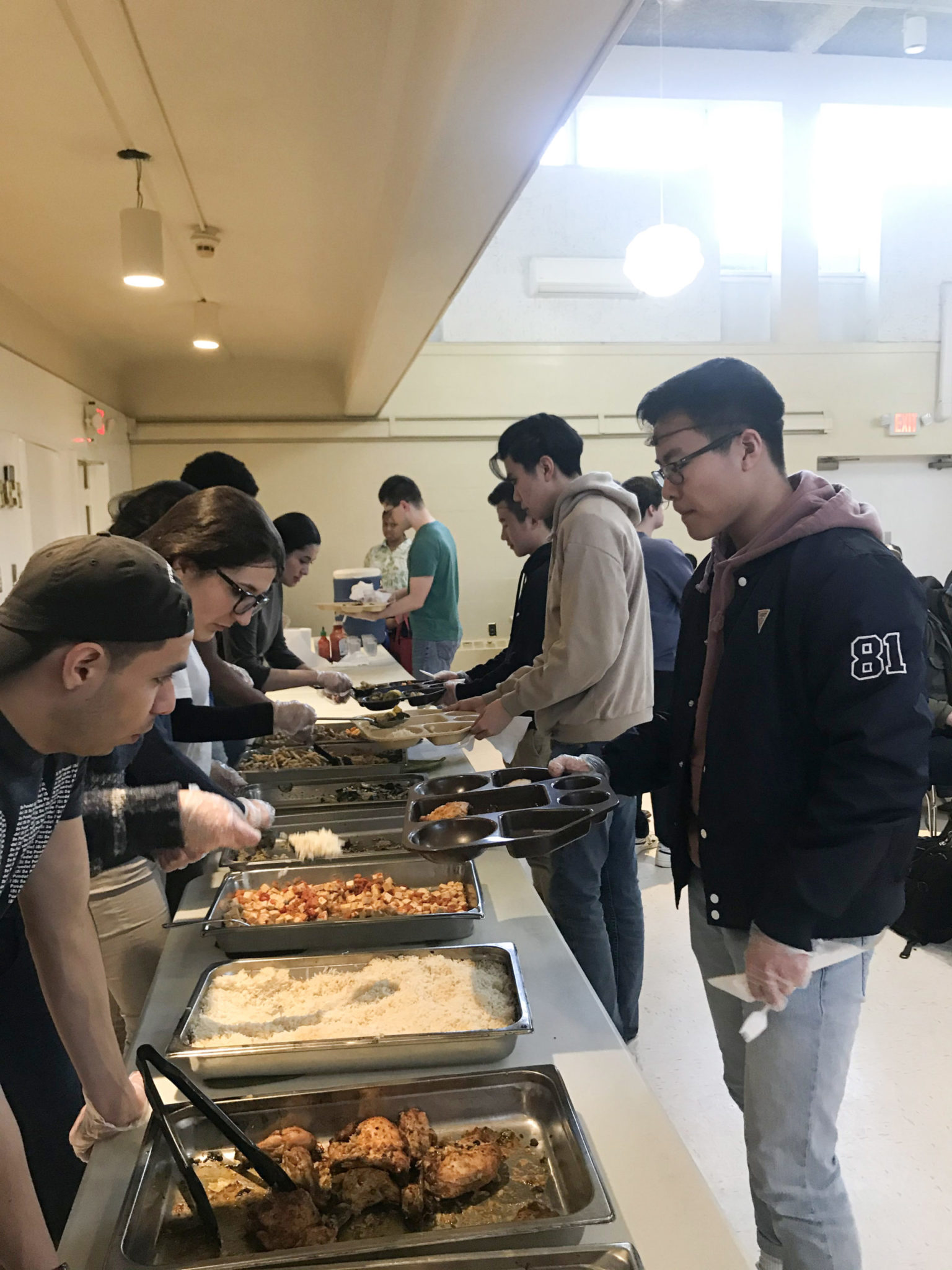
Brian Lin, Contributing Photographer
As Elm City soup kitchens prepare for cooler weather, they have concerns beyond the issue of how to serve meals during the COVID-19 pandemic, particularly surrounding efforts to build community.
Before the pandemic, soup kitchens were far more than just a place to get a free hot meal. For the food insecure residents of New Haven, they were an informal access point to social workers, counselling and healthcare. Crowds of more than 150 guests daily could socialize with volunteers in large dining halls, building mutual trust and rapport. Now, those crowds are no more. Lively conversation is replaced by silent exchanges of pre-prepared grab and go meals, served outside in a socially distanced manner. As winter approaches, soup kitchen volunteers expressed concerns about their long-term ability to provide a sense of community for those in need.
“We consider ourselves this rock that [our guests] can keep coming back to in the event that they need to access other services,” said Steve Werlin, executive director of Downtown Evening Soup Kitchen, which serves meals throughout the week from two parishes on Temple Street. “If we go away, it’s really leaving our population without anything. We feel like we’re the last bastion on the front lines.”
DESK, facing the realities of the pandemic, cut down its team so that only three staff members are needed to serve the more than 90 guests that come to the kitchen’s doors each night. Sunrise Cafe, which serves breakfast on weekdays, adopted a similar model, cutting down their servers to only three staff members each morning.
“[Before COVID-19], we always had 20 to 25 people who would [volunteer] and there would be warmth and friendliness and interaction,” Art Hunt, an administrator for Sunrise Cafe, told the News. “[Now], we have the same friendly faces but it’s not the community that we aspire to be able to create.”
Hunt explained that the grab and go model is not particularly effective for healthcare providers and social workers. This is because there are fewer people for them to interact with and less time to observe those in need to determine how they can be helped.
Nonetheless, Hunt said he has greater concerns that social distancing needs will prevent soup kitchens from acting as a temporary refuge from the cold as winter approaches. He said Sunrise Cafe is exploring ways to open its indoor space without putting people at risk of infection, which might involve fast turnover of diners, regular temperature checks and extension of hours.
Burton Atler, the board chair at Community Soup Kitchen, expressed similar concerns for his clients. He said he is looking into ways to put up plexiglass and increase ventilation in CSK’s large dining room on Broadway in the event that they can reopen indoor spaces. Donations helped CSK cope with cost increases.
“We had to raise extra donated funds in order to cover the increased costs of the plates,
the utensils, the cleaning supplies and everything else that we needed,” Atler told the News. “But the great thing is that so many people are aware of what the issues are and we’re getting a lot more unsolicited donations where people will come to us and ask what we need.”
DESK also experienced cost increases, which Werlin estimated at $10,000. Community donations, including large grants from the Yale Community for New Haven Fund and United Way, prevented his organization from having to make cuts.
Donations sent to DESK have also been used to support their partner Yale Community Kitchen, a student-run group serving food on Friday and Saturday evenings. A representative from the group said that while students and alumni have already stepped up to support their efforts, the long-term future of local soup kitchens will depend on continued support from the community.
“We hope that New Haven’s leaders continue to prioritize funding and efforts toward resolving food insecurity, and in broader terms, hunger and homelessness in New Haven,” said Justin Nguyen, one of YCK’s project heads. “As we continue work to improve our operations and support our guests, we continue to ask Yale to do the same.”
Werlin echoed Nguyen’s sentiments, fearing ramifications for those who depend on any form of nonprofit support. He anticipated a contracting of many of the social services offered in Elm City.
“How long will this recession last and what is that going to do to the social services landscape in a small city like New Haven?” Werlin asked. “I’m concerned about where we’ll be at this time next year. Will we be able to continue providing our services at this level? Will those funds and donations start drying up as people are not going back to work and as the economy is not recovering?”
Downtown Evening Soup Kitchen also delivers pantry items directly to those unable to leave their homes during the pandemic.
Interested in getting more news about New Haven? Join our newsletter!







